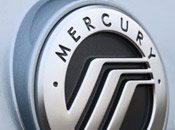2002 Mercury Villager Insurance Rates
Are you tired of trying to scrape together enough money to buy car insurance? You are in the same boat as many other consumers. You have so many auto insurance companies to buy insurance from, and though it is a good thing to have multiple companies, having more car insurance companies makes it harder to find the best rates.
Vehicle Insurance Comparison
Finding cheaper 2002 Mercury Villager auto insurance prices can be surprisingly simple. Just spend a few minutes to compare quotes from different insurance companies. This can be done in just a few minutes using one of these methods.
- The most efficient way consumers can make multiple comparisons is to use a rate comparison form like this one (opens in new window). This easy form keeps you from doing repetitive form submissions to each individual auto insurance company. One form submission gets rate comparisons from multiple companies.
- A different way to analyze rates is to take the time to go to the website for each individual company and fill out their own quote form. For instance, let’s assume you want comparison quotes from USAA, 21st Century and Geico. To find out each rate you need to take the time to go to each site and enter your information, which is why the first method is more popular. For a list of links to companies insuring cars in your area, click here.
Whichever method you choose, make sure you use identical coverage information on every quote. If you have different liability limits it will be very difficult to make an equal comparison.
Everyone needs different coverages
When buying adequate coverage for your personal vehicles, there isn’t really a “best” method to buy coverage. Your needs are not the same as everyone else’s so your insurance should reflect that For example, these questions may help you determine whether your personal situation would benefit from professional advice.
- Are rock chip repairs covered?
- Is my vehicle covered by my employer’s policy when using it for work?
- Exactly who is provided coverage by my policy?
- Do I need roadside assistance coverage?
- Can I afford to pay high deductible claims out of pocket?
- Why am I be forced to buy a membership to get insurance from some companies?
- I don’t drive much so do I pay less?
If you don’t know the answers to these questions but you think they might apply to your situation, you might consider talking to an insurance agent. To find lower rates from a local agent, simply complete this short form or go to this page to view a list of companies. It only takes a few minutes and you can get the answers you need.
The coverage is in the details
Knowing the specifics of car insurance aids in choosing appropriate coverage for your vehicles. The coverage terms in a policy can be impossible to understand and even agents have difficulty translating policy wording. Listed below are typical coverages found on the average car insurance policy.
Collision coverage protection
Collision insurance pays for damage to your Villager from colliding with another car or object. You have to pay a deductible then the remaining damage will be paid by your insurance company.
Collision insurance covers things such as hitting a parking meter, scraping a guard rail and backing into a parked car. This coverage can be expensive, so you might think about dropping it from vehicles that are 8 years or older. You can also raise the deductible to get cheaper collision coverage.
Liability car insurance
This will cover damages or injuries you inflict on a person or their property in an accident. This insurance protects YOU against claims from other people, and doesn’t cover damage sustained by your vehicle in an accident.
It consists of three limits, per person bodily injury, per accident bodily injury, and a property damage limit. Your policy might show liability limits of 25/50/25 which stand for $25,000 in coverage for each person’s injuries, a total of $50,000 of bodily injury coverage per accident, and a total limit of $25,000 for damage to vehicles and property. Another option is one number which is a combined single limit which limits claims to one amount with no separate limits for injury or property damage.
Liability insurance covers things such as structural damage, bail bonds, medical services, pain and suffering and emergency aid. How much coverage you buy is up to you, but you should buy as high a limit as you can afford.
Comprehensive or Other Than Collision
This will pay to fix damage from a wide range of events other than collision. A deductible will apply and then insurance will cover the rest of the damage.
Comprehensive insurance covers claims such as hail damage, hitting a bird and damage from flooding. The highest amount your car insurance company will pay is the ACV or actual cash value, so if the vehicle is not worth much consider dropping full coverage.
UM/UIM Coverage
This provides protection when other motorists are uninsured or don’t have enough coverage. It can pay for injuries sustained by your vehicle’s occupants and damage to your Mercury Villager.
Since a lot of drivers carry very low liability coverage limits, their liability coverage can quickly be exhausted. For this reason, having high UM/UIM coverages is very important. Frequently these limits are similar to your liability insurance amounts.
Medical costs insurance
Med pay and PIP coverage kick in for expenses such as pain medications, dental work, ambulance fees and surgery. They are utilized in addition to your health insurance policy or if you do not have health coverage. It covers not only the driver but also the vehicle occupants and will also cover if you are hit as a while walking down the street. PIP coverage is not an option in every state but it provides additional coverages not offered by medical payments coverage

